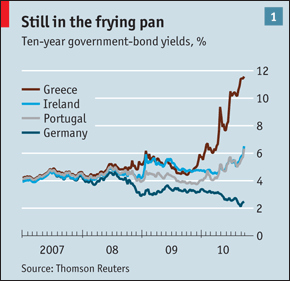why does the fed target interest rate rather than money supply?
Thursday, December 19, 2013
, Posted by Ryanita at 2:59 PM

xtie
i understand that one possible reason is that interest rate is easier to measure than money supply. however, i don't understand the reason in relation to the IS-LM model: Mankiw says, "If LM shocks are the more prevalent type, then a policy of targeting the interest rate leads to greater economic stability than a policy of targeting the money supply." I don't understand this sentence. Why? What does he mean by "If LM shocks are the more prevalent type?" how does targeting interest rate lead to greater economic stability in this case? thanks!
Answer
Ummmm, in essence the targeting of the Interest rate impacts the money supply by making the price of money cheaper (when it cuts).
The Federal Reserve no longer publishes the actual M1 and M2 figures. You have to infer the actual money supply by targeting the foreign exchange (like a Forex trader).
The people, in this case you and me, do not do business directly with the Fed anyway. We do business with the banking sector, unless you are a Federal Reserve employee. But in that case I don't think you are going to be posting on Yahoo Answers. As far as the model is concerned, I can only imagine Scrooge McDuck laughing and rolling while throwing money into the air in the vault.
Ummmm, in essence the targeting of the Interest rate impacts the money supply by making the price of money cheaper (when it cuts).
The Federal Reserve no longer publishes the actual M1 and M2 figures. You have to infer the actual money supply by targeting the foreign exchange (like a Forex trader).
The people, in this case you and me, do not do business directly with the Fed anyway. We do business with the banking sector, unless you are a Federal Reserve employee. But in that case I don't think you are going to be posting on Yahoo Answers. As far as the model is concerned, I can only imagine Scrooge McDuck laughing and rolling while throwing money into the air in the vault.
How are currency exchange rates calculated?

Chris B
The US Dollar is declining in value against the British Pound and the Euro, but the decline versus the Euro is greater.
If US interest rates are reset lower, I am told that the value of the Dollar versus the other currencies declines further.
These exchange rates are calculated to four decimal places, indicating significant precision.
If the Chinese Yuan is set higher than it currently is, what will that do to the Dollar versus the Pound and the Euro?
Answer
Exchange rates are not calculated the are determined by the currency exchange markets where traders by and sell currencies. see FOREX.
The theory predicts that that the demand for dollars is dependent on the interest investors can get on dollar denominated bonds, so a lower interest rate decreases the demand and would lower the "price" of the dollar, but the amount of the decrease is a rough estimate.
Exchange rates are not calculated the are determined by the currency exchange markets where traders by and sell currencies. see FOREX.
The theory predicts that that the demand for dollars is dependent on the interest investors can get on dollar denominated bonds, so a lower interest rate decreases the demand and would lower the "price" of the dollar, but the amount of the decrease is a rough estimate.
Powered by Yahoo! Answers






Currently have 0 comments: